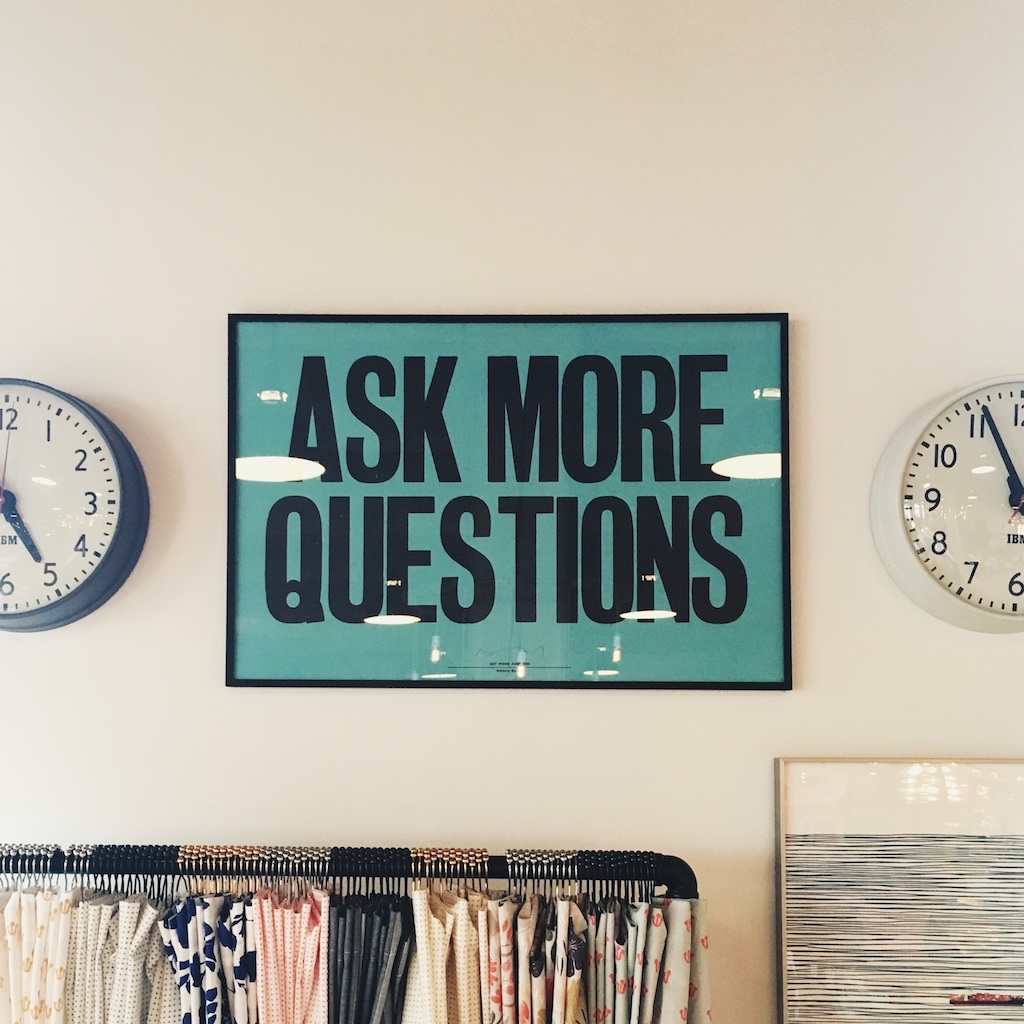As a candidate for a job, you often forget that the interview process is as much about the company pleasing you as it is about you pleasing the company. Just as much as you may want the role, closely consider if the company fits in well with your goals and values. Too many candidates forget this and don’t make use of the question time that occurs in an interview. Asking as many questions in the interview in order to make an informed decision about the role can avoid any mismatch in expectations from both parties involved.
Word of warning! When you’re asked if you have any questions at the end of an interview, don’t ask straight away what the next steps of the recruitment process are. It shows a lack of interest in the company and portrays that you think you’re already good enough to be selected.
Remember, questions can also be asked during the interview; you don’t always have to wait until the end. Go with the flow and include any questions appropriately in the conversation, which will show your enthusiasm and desire to learn more.
Here are some suggestions for you:
- What is the company culture like? You want to be able to understand the work ethic, work/life balance, team synergies and team approaches to difficult situations. Do they commit to long hours to win a particular client, or do they prefer to work the same hours despite pressing deadlines? Dig deeper and try to understand what everyone’s capabilities are, what the team lacks and how you might fit in.
- What would an average day would look like in your role? Here’s a question that is often overlooked. The aim is to understand the daily/weekly tasks, whom you would be working with, what tools you would utilise and what sort of clients/projects you’ll work on. There’s no better way of understanding what your future role will look like. If an interviewer is too vague with the answer, question even further. This is also an opportunity to understand how much of your role is left for you to figure out yourself. Often, in the case of a startup, you may have to create your own role in the long term. If you don’t know your niche and prefer to be told what to do the majority of the time, ask questions to help you figure out if you’ll be working to a thorough work plan executed by your senior.
- What would make ‘me’ a good employee? In this question you want to understand what the employer would want to see you achieve in the role. By listening to the key achievements they want you to perform, you can begin to understand what types of work you will be carrying out, how demanding the role is and whether if it’s something you think you could do. If it sounds like a challenge – go for it! If it sounds too easy/if you feel like you’re overqualified, this should ring some alarm bells. You may want to take some time to ask further questions as to how quickly you can progress in the company.
In a startup, there are numerous challenges and difficulties you’ll inevitably face. Choose 2-3 challenges you think the company would like to overcome and express how you would address them. Many times, the most valuable characteristic is to show you’re willing to take the lead on something (a project, client, event, department, etc). Founders/managers don’t necessarily care if you make mistakes along the way, but being able to say “I’ve got this” and to relieve some of the stress is invaluable.
Don’t be afraid to ask lots of questions and don’t be scared that your questions might be ‘silly’. It’s not a problem to ask when you can expect to hear from the employer next. If you want to go the extra mile, email the employer a day or two later thanking them for their time and explaining one or two key issues that came up in the interview that you particularly enjoyed discussing and how you could see yourself directly helping the company. They’ll remember you as a candidate even better that way.
Here’s to receiving the job offer you want, and when you do, accept it with enthusiasm!
About the author: Yasmin Desai has worked in a number of startups and currently works at Monkfeet as Head of Business Development. Yasmin is passionate about startups and has a keen interest in supporting women in entrepreneurship.
This post originally appeared on The Start Up Girl blog.
